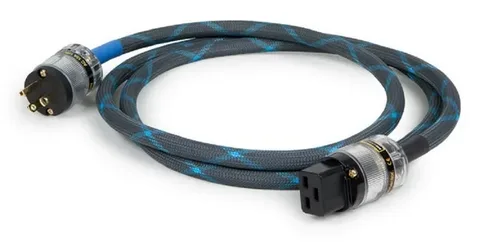Introduction To Power Cable Price in Pakistan
When it comes to electrical installations, the type and quality of power cables used can significantly impact performance and safety. In Pakistan, the demand for various types of power cable price in Pakistan, including AC solar wires, has surged due to the growing need for reliable electricity solutions in residential, commercial, and industrial sectors. This article explores the various aspects of power cable pricing in Pakistan, the factors affecting these prices, and a focus on AC solar wires.
Understanding Power Cables
Power cables are electrical cables used to transmit and distribute electrical energy. They come in various sizes, types, and specifications, tailored for different applications. Some common types of power cables include:
- Low Voltage Cables: Typically used in residential and commercial applications for lighting and power distribution.
- Medium Voltage Cables: Used for distribution in industrial settings and large commercial buildings.
- High Voltage Cables: Designed for transmission over long distances, primarily used by utility companies.
- Solar Cables: Specifically designed for connecting solar panels to inverters and batteries, including AC solar wires in Pakistan.
Current Prices of Power Cables in Pakistan
As of 2024, the prices of power cables in Pakistan vary widely based on several factors such as type, brand, and specifications. Here is a general overview of power cable prices:
1. Low Voltage Cables
Low voltage cables are essential for residential and small commercial use. The prices generally range from PKR 50 to PKR 200 per meter depending on the gauge (thickness) and insulation type. For instance:
- 1.5 mm² PVC insulated cable: Approximately PKR 60 per meter.
- 2.5 mm² PVC insulated cable: Approximately PKR 100 per meter.
2. Medium Voltage Cables
Medium voltage cables, typically used for larger installations, are priced higher. The average cost ranges from PKR 250 to PKR 600 per meter based on specifications. For example:
- 10 kV XLPE cable: Around PKR 400 per meter.
- 11 kV PVC cable: Approximately PKR 500 per meter.
3. High Voltage Cables
High voltage cables are critical for electricity transmission over long distances. The prices can vary significantly, often ranging from PKR 800 to PKR 2000 per meter. Key examples include:
- 33 kV XLPE cable: About PKR 1200 per meter.
- 66 kV XLPE cable: Approximately PKR 1800 per meter.
4. AC Solar Wires
AC solar wires in Pakistan are vital for solar power systems, ensuring efficient transmission of electricity from solar panels to inverters and subsequently to the grid or storage systems. The cost for AC solar wires in Pakistan can vary, typically around PKR 200 to PKR 500 per meter, depending on the quality and specifications.
- 1.5 mm² AC solar wire: Approximately PKR 250 per meter.
- 2.5 mm² AC solar wire: Around PKR 400 per meter.
Factors Influencing Power Cable Prices
Several factors affect the pricing of power cables in Pakistan:
1. Material Quality
The type of materials used in manufacturing power cables plays a crucial role in determining their cost. Cables made from high-quality copper are more expensive than those made from aluminum due to their superior conductivity and durability. Similarly, cables with advanced insulation materials (like XLPE) tend to cost more than standard PVC insulated cables.
2. Brand Reputation
Well-known brands often charge a premium for their products due to perceived reliability and quality. Customers may be willing to pay more for trusted brands that offer warranties and proven performance.
3. Market Demand and Supply
The demand for power cables can fluctuate based on various factors, including economic growth, infrastructure development, and seasonal demand in the construction industry. High demand can lead to increased prices, while oversupply may cause prices to drop.
4. Regulatory Standards
In Pakistan, power cables must meet specific regulatory standards and certifications. Compliance with these regulations can add to production costs, which are then passed on to consumers.
5. Currency Fluctuations
As many raw materials for power cable production are imported, fluctuations in the Pakistani Rupee against foreign currencies can directly impact prices. An increase in import costs due to currency depreciation may lead manufacturers to raise their prices.
Purchasing Power Cables in Pakistan
When purchasing power cables, it’s essential to consider several factors:
1. Application Requirements
Different applications require different types of cables. It’s crucial to select cables based on voltage ratings, insulation types, and environmental conditions (such as exposure to moisture or chemicals).
2. Certification and Compliance
Always look for cables that comply with international and local standards. Certified cables ensure safety and reliability, reducing the risk of electrical failures.
3. Supplier Reputation
Choose suppliers with a solid reputation in the market. Researching customer reviews and feedback can help identify reliable vendors.
4. Warranty and Support
A warranty provides peace of mind, ensuring that any defects or issues can be addressed without additional costs. Good customer support from the supplier can also be beneficial for troubleshooting.
The Future of Power Cables in Pakistan
As Pakistan continues to develop its infrastructure and energy sector, the demand for quality power cables is expected to rise. The government is investing in renewable energy projects, which will further increase the need for specialized cables, including AC solar wires.
1. Renewable Energy Growth
With a significant focus on renewable energy, particularly solar power, the market for solar cables is set to expand. The government’s initiatives to promote solar energy usage in households and businesses will drive demand for AC solar wires and other related components.
2. Technological Advancements
Advancements in cable manufacturing technology are likely to lead to improved products with better performance characteristics, potentially affecting pricing structures.
3. Sustainability Concerns
As environmental awareness grows, there may be an increasing demand for cables made from sustainable materials. This trend could influence production methods and pricing.
Conclusion
Understanding the price dynamics of power cables in Pakistan is crucial for consumers and businesses alike. From low voltage cables to high voltage and specialized AC solar wires, various options are available to meet different needs. The prices can fluctuate based on factors such as material quality, brand reputation, and market demand.
As the country progresses towards a more energy-efficient future, investing in quality power cables will play a significant role in ensuring safety, reliability, and performance in electrical installations. Whether you are looking for standard power cables or specialized AC solar wires in Pakistan, informed purchasing decisions can lead to better outcomes in your projects.
Post Excerpt
This article delves into the current power cable prices in Pakistan, highlighting essential factors influencing costs. It specifically focuses on AC solar wires, discussing their significance in the expanding renewable energy sector. For detailed insights and purchasing advice, read on to explore the dynamic landscape of power cables in Pakistan.




